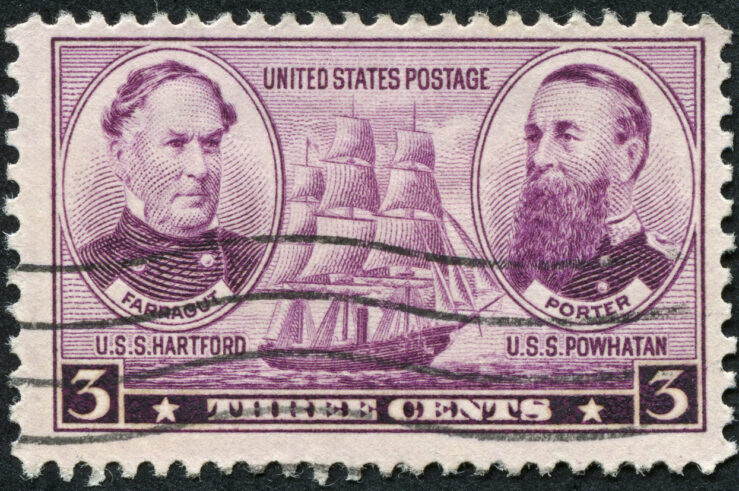Showing archive for: “Vertical Integration”
DOJ’s Not-so-Modest Proposal
The U.S. Justice Department (DOJ) late last month filed its much-anticipated initial proposed final judgment in the Google Search antitrust case. The proposal—to use a bit of baseball parlance—swung for the fences. Maybe they’ll get a hit, or maybe even a home run. Or not. Dodgers superstar Shohei Ohtani hit a whopping 54 home runs ... DOJ’s Not-so-Modest Proposal
Why It May Be Time to Consider a Merger Policy Reset in 2025
The Biden administration’s federal antitrust regulators—the U.S. Justice Department (DOJ) and the Federal Trade Commission (FTC)—have been widely perceived as actively discouraging mergers and acquisitions. This reflects the rejection of a longstanding bipartisan understanding that government would only oppose proposed M&A transactions that are likely to harm competition. The Biden approach arguably threatens to harm the ... Why It May Be Time to Consider a Merger Policy Reset in 2025
Note to the FTC: Punishing Efficiency Means Destroying Competition
Yesterday, Lina Khan’s FTC released their long-awaited draft merger guidelines for public comment. Regrettably yet not unsurprisingly, the new guidelines are a radical departure from established case law and antitrust thinking. They’re marked by a failure to account for the role of efficiencies in the competitive process, and a failure to distinguish between the implications of generally ... Note to the FTC: Punishing Efficiency Means Destroying Competition
7 Top Takeaways from the 2nd Annual Mercatus Antitrust Forum
At the Jan. 26 Policy in Transition forum—the Mercatus Center at George Mason University’s second annual antitrust forum—various former and current antitrust practitioners, scholars, judges, and agency officials held forth on the near-term prospects for the neo-Brandeisian experiment undertaken in recent years by both the Federal Trade Commission (FTC) and the U.S. Justice Department (DOJ). ... 7 Top Takeaways from the 2nd Annual Mercatus Antitrust Forum
Biweekly FTC Roundup: Grail-Shaped Beacon Edition
The lame duck is not yet dead, and the Federal Trade Commission (FTC) is supposed to be an independent agency. Work continues. The Commission has announced a partly open oral argument in the Illumina-Grail matter. That is, parts of the argument will be open to the public, via webcast, and parts won’t. This is what’s ... Biweekly FTC Roundup: Grail-Shaped Beacon Edition
The FTC Knows It When It Sees It
When Congress created the Federal Trade Commission (FTC) in 1914, it charged the agency with condemning “unfair methods of competition.” That’s not the language Congress used in writing America’s primary antitrust statute, the Sherman Act, which prohibits “monopoliz[ation]” and “restraint[s] of trade.” Ever since, the question has lingered whether the FTC has the authority to ... The FTC Knows It When It Sees It
Damn the Economics, Full Speed Ahead!
A White House administration typically announces major new antitrust initiatives in the fall and spring, and this year is no exception. Senior Biden administration officials kicked off the fall season at Fordham Law School (more on that below) by shedding additional light on their plans to expand the accepted scope of antitrust enforcement. Their aggressive ... Damn the Economics, Full Speed Ahead!
Are All Mergers Inherently Anticompetitive?
A recent viral video captures a prevailing sentiment in certain corners of social media, and among some competition scholars, about how mergers supposedly work in the real world: firms start competing on price, one firm loses out, that firm agrees to sell itself to the other firm and, finally, prices are jacked up.(Warning: Keep the ... Are All Mergers Inherently Anticompetitive?
The Catch-22 of AICOA’s Guidelines
If S.2992—the American Innovation and Choice Online Act or AICOA—were to become law, it would be, at the very least, an incomplete law. By design—and not for good reason, but for political expediency—AICOA is riddled with intentional uncertainty. In theory, the law’s glaring definitional deficiencies are meant to be rectified by “expert” agencies (i.e., the ... The Catch-22 of AICOA’s Guidelines
Chair Khan’s Latest Flawed Perspective on Mergers Ignores Empirics and Sound Economics
Federal Trade Commission (FTC) Chair Lina Khan missed the mark once again in her May 6 speech on merger policy, delivered at the annual meeting of the International Competition Network (ICN). At a time when the FTC and U.S. Justice Department (DOJ) are presumably evaluating responses to the agencies’ “request for information” on possible merger-guideline ... Chair Khan’s Latest Flawed Perspective on Mergers Ignores Empirics and Sound Economics
Unpacking the Flawed 2021 Draft USPTO, NIST, & DOJ Policy Statement on Standard-Essential Patents (SEPs)
Responding to a new draft policy statement from the U.S. Patent & Trademark Office (USPTO), the National Institute of Standards and Technology (NIST), and the U.S. Department of Justice, Antitrust Division (DOJ) regarding remedies for infringement of standard-essential patents (SEPs), a group of 19 distinguished law, economics, and business scholars convened by the International Center ... Unpacking the Flawed 2021 Draft USPTO, NIST, & DOJ Policy Statement on Standard-Essential Patents (SEPs)
Privacy and Security Risks of Interoperability and Sideloading Mandates
There has been a wave of legislative proposals on both sides of the Atlantic that purport to improve consumer choice and the competitiveness of digital markets. In a new working paper published by the Stanford-Vienna Transatlantic Technology Law Forum, I analyzed five such bills: the EU Digital Services Act, the EU Digital Markets Act, and ... Privacy and Security Risks of Interoperability and Sideloading Mandates















